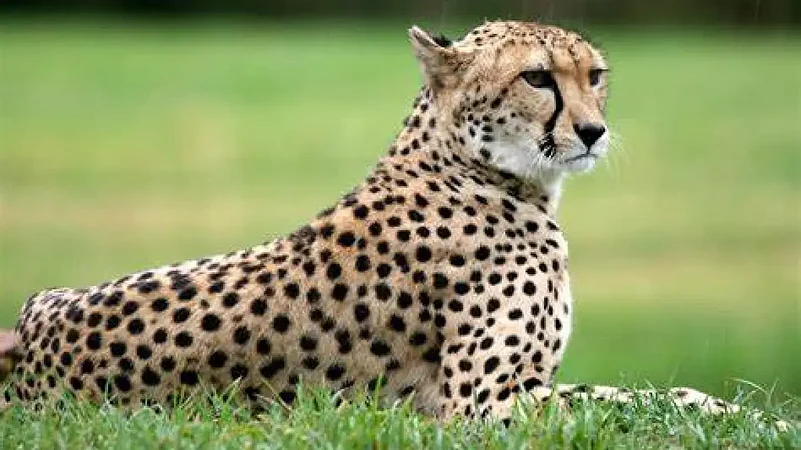Prime Minister Narendra Modi will release cheetahs imported from Africa into Madhya Pradesh on September 17, marking the beginning of the ambitious program to reintroduce cheetahs in India.
Cheetas went extinct in India in 1952 after extensive hunting by the Indian nobility and the British during the colonial period.
Madhya Pradesh Forest Minister Vijay Shah said cheetahs will arrive in state's Kuno-Palpur National Park from Namibia on September 17 and Modi will release them in specially built enclosures the same day. September 17 is also Modi's birthday.
After overseeing preparations made at the Kuno-Palpur National Park for the ambitious cheetah re-introduction programme, Shah on Saturday expressed hope that the project will increase tourist footfall and boost employment opportunities for people in the region.
"The cheetahs being brought from Namibia [in southern Africa] will reach Kuno-Palpur on September 17. The felines will stay in smaller enclosures during the quarantine phase before being shifted to the bigger one," Shah said.
Meanwhile, speaking in Gwalior, Union Civil Aviation Minister Jyotiraditya Scindia said it is not an easy project to reintroduce cheetahs in another country, adding that the re-introduction of cheetahs is a historic occasion not only for India but for the entire world.
He said, "The shifting of cheetahs, tigers or lions is not an easy task as very few such projects have been successful in the world. The climate at Kuno-Palpur sanctuary is perfect for the cheetahs."
The 'African Cheetah Introduction Project in India' has been underway since 2009 and it picked up speed in the last few years.
Experts have, however, questioned the reintroduction of cheetahs, saying that it would divert attention from critical conservation priorities.
"This initiative to get African cheetahs is neither science-based nor a national conservation priority. Unfortunately, this will significantly distract from higher priority conservation issues like the much-delayed lion translocation," said Ravi Chellam, the CEO of Metastring Foundation and Coordinator of Biodiversity Collaborative in an article for Outlook.
Chellam further said of the cheetah reintroduction plan: "Tragically, this would end up being akin to a glorified safari park after having consumed a disproportionate quantity of resources. The officially projected population after 15 years is only a few dozen cheetahs at a couple of sites that will require intensive management, which would prove expensive. Such a small number of cats at very few sites cannot meet the stated goal of performing its ecological function at any significant scale."
(With PTI inputs)






















